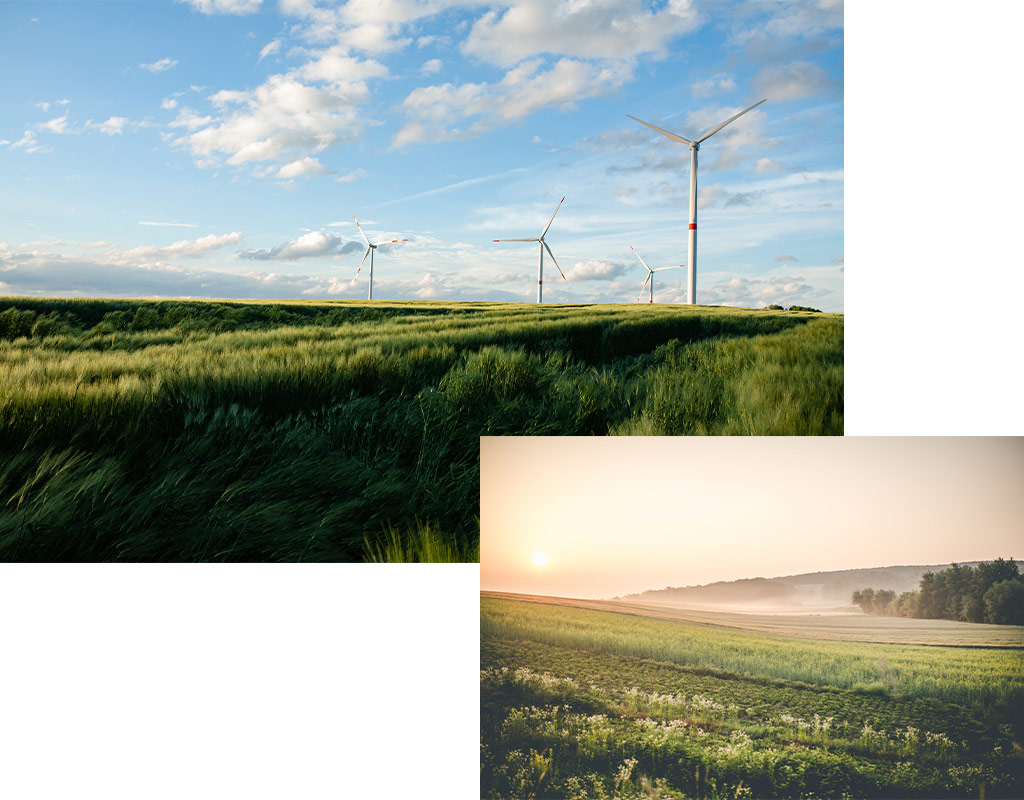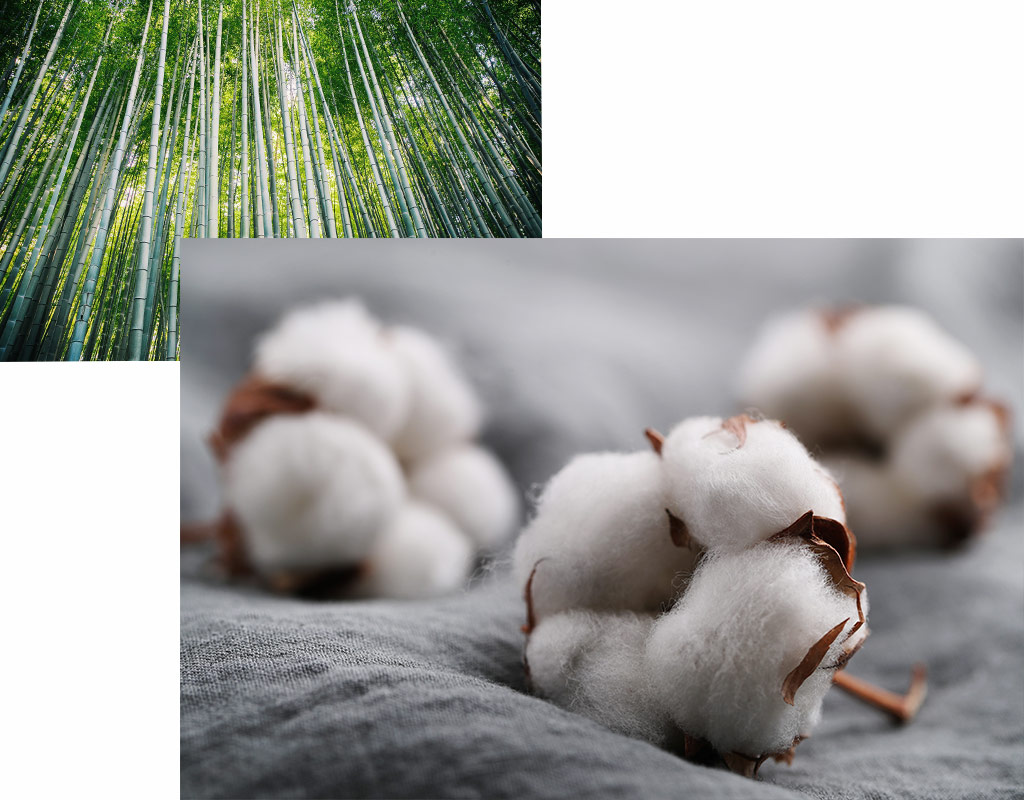

Sustainability all the way
For us at GSA, protecting the environment is not just an option, but a necessity. Living in a consumer world, we need to balance our needs and our desires, with our impact on the environment. Due to globalization, we must adopt a new way of life, not only to meet our needs but also to maintain an environment where our children will be able to enjoy this planet as much as we do.
Our goal is to create high-end sportswear while causing the least possible harm to the environment. From the beginning, being sustainable was our number one priority. We remain true to our values, and we also make sure to apply sustainable solutions to our other actions, starting from our low energy building to the recyclable label and packaging on our clothes.
But what is it that we do exactly?
Towards Sustainability
We are constantly looking for more ways to innovate and improve. After years of research, several trials, success, and failure, we create timeless sportswear that is constantly improved.
We now present collections which, for the most part, are produced using sustainable, natural, recyclable, and soon reusable materials.
We have successfully used recycled materials in most of our products, based on our R3 philosophy.
R3 is our trademark that confirms the circular and repetitive practices by which we choose to operate. It is our way of confirming the implementation of best practices, based on protecting the environment while also respecting the following:
Respect: the environment we live in
Recycle: use of recycled materials
Repeat: respect and recycling are repeated during the production process, resulting in sustainable products of high quality and advanced know-how.
And this cycle never stops…
Our goal is to soon create collections from 100% recycled or other sustainable materials!

Sustainability
Renewable Resources
Sustainability Is Power
The catastrophic consequences and reckless use of our planet’s resources are well known. Millions of tons of pollutants are found in forests, our seas, in the air we breathe, and in the food we consume. The need to rethink the way we operate is vital!
So, what is our answer to that?
Locally Produced | Designed & Crafted in Greece
In our efforts towards a fully sustainable collection, we are trying to find ways to minimize our environmental footprint by any means possible. When one solution is not feasible, we try another one and we never quit until we find a way.
So, our SUPERCOTTON series is made from the best-quality combed cotton yarns. And it is made Locally. Here, in Athens, Greece. But what does this mean towards sustainability?
One of the greatest benefits of producing locally is that the reduction of CO2 emissions is enormous. The goods only have to travel a small distance by truck, instead of making air or sea travel, all the way from another continent.
What is more, producing locally means more flexible production so the problem of deadstock, – meaning the fabric leftover which is often thrown away (don’t worry we’ve found another solution for that too!) is minimized to absolute zero. We can stop production of goods that aren’t selling well and make smaller and more frequent productions as goods sell.
Last but definitely not least, producing and buying locally means greater support to the local economy on both a micro and macro-economic level. By doing production on smaller factories and local technicians, we support family businesses. Not to mention we have greater control of the working conditions that workers face.
Still, we will never quit trying to find even better and more sustainable solutions. Because the sky is the only limit when it comes to innovating towards the protection of the environment.
Repurpose | Scraps of the past to construct the future
Every year, approximately 80 billion garments are produced worldwide, while the fashion industry alone, generates over 13 million tons of fabric waste. 64% of the world’s garment production, end up being dumped in landfills, which can even take up to 200 years to decompose…
What is even more shocking, is that the average person buys 60% more items of clothing every year, resulting in generating a huge amount of waste. The numbers speak for themselves!
In our constant efforts for producing more and more environmentally conscious and sustainably oriented sportswear collections, what we do, is that we thoroughly collect our deadstock textiles – the leftovers – and create limited collections, with fabrics that would otherwise be thrown away, resulting in generating more waste to the planet.
The final textile assortment may vary in the color shade, type of fabric, or stitching. While someone could see that as a limitation, we choose to overcome this issue. The end product is distinct, with unique fabric combinations, that differ from the typical fashion garments.
What we do is that we compile scraps of the past to construct the future!
This way is eco-friendlier than adding to the global fashion waste. Involving, transitioning, and constantly improving, we pledge that we’ll never quit looking for the most sustainable options available.
Natural and sustainable materials in every new collection
The increased use of natural raw and sustainable materials is a prerequisite for us, in the design, creation, and production of every new collection.
With this in mind, our Research & Development department is constantly researching and testing new and alternatives solutions, instead of the classic yarns and materials, to use even more sustainable and at the same time durable products.
Sustainable and Environmentally Friendly Materials:
Organic Cotton: is grown without the use of toxic chemicals from GMOs (genetically modified organisms). Its production is done according to practices that promote biodiversity, by keeping the soil, water, and air clean of harmful pollutants, thus reducing the negative environmental consequences.
Organic cotton production produces about 46% less CO2 emissions than conventional cotton. As a result, much less water is used, as producers utilize much more rain than other water sources.
Recycled Synthetic Fibers: as over 65% of the world’s fiber production is synthetic, the use of recycled synthetic yarns in our products is an immediate priority for us and a necessary turning point in our collections.
The recycled polyester yarns we use, come mainly from recycled and disposable plastic (PET) bottles as well as recycled polyester yarn waste, while the recycled polyamide comes mainly from fishing nets collected from the seas.
Bamboo: Bamboo fabric is considered to be one of the most sustainable modern fabric choices, especially compared to other synthetic fibers. Its production is much less expensive than that of organic cotton, while it avoids the extensive use of pesticides.
Products with BCI certification
After extensive research and multiple tests on the equality of our fabrics, we have chosen to work with selected factories around the world. We supply BCI-certified products, which is a certification that confirms the continuous efforts to improve cotton cultivation worldwide. We aim to improve the global cotton production, towards the people who produce it, the environment, and the overall future of this industry.
Collaborations and Certifications
Gepaworld Group, part of which is GSA, is a member of the Amfori Organization and is BSCI certified. BSCI certification is for retailers and brands that supply goods to European markets from international supply chains. It ensures that all suppliers treat their employees ethically and lawfully.
Products designed to last the test of time
It is widely known that sportswear is strained along with those who wear it. Sports clothes are washed often, the seams and elasticity are tested in every workout, while friction and sweat are a given. However, if someone feels comfortable in them, they hesitate to change them. So, this is our goal. To create clothes that are so comfortable, durable, and with timeless designs, so no one feels the need to replace them, which means only one thing. Less used clothes, less waste!
Sustainability at every stage of the production
Our sustainable choices do not only apply to the production of our garments. Each tag placed on our clothes has FSC certification, which confirms that products come from responsibly managed forests that provide environmental, social, and economic benefits.
Locally Produced | Designed & Crafted in Greece
In our efforts towards a fully sustainable collection, we are trying to find ways to minimize our environmental footprint by any means possible. When one solution is not feasible, we try another one and we never quit until we find a way.
So, our SUPERCOTTON series is made from the best-quality combed cotton yarns. And it is made Locally. Here, in Athens, Greece. But what does this mean towards sustainability?
One of the greatest benefits of producing locally is that the reduction of CO2 emissions is enormous. The goods only have to travel a small distance by truck, instead of making air or sea travel, all the way from another continent.
What is more, producing locally means more flexible production so the problem of deadstock, – meaning the fabric leftover which is often thrown away (don’t worry we’ve found another solution for that too!) is minimized to absolute zero. We can stop production of goods that aren’t selling well and make smaller and more frequent productions as goods sell.
Last but definitely not least, producing and buying locally means greater support to the local economy on both a micro and macro-economic level. By doing production on smaller factories and local technicians, we support family businesses. Not to mention we have greater control of the working conditions that workers face.
Still, we will never quit trying to find even better and more sustainable solutions. Because the sky is the only limit when it comes to innovating towards the protection of the environment.
Repurpose | Scraps of the past to construct the future
Every year, approximately 80 billion garments are produced worldwide, while the fashion industry alone, generates over 13 million tons of fabric waste. 64% of the world’s garment production, end up being dumped in landfills, which can even take up to 200 years to decompose…
What is even more shocking, is that the average person buys 60% more items of clothing every year, resulting in generating a huge amount of waste. The numbers speak for themselves!
In our constant efforts for producing more and more environmentally conscious and sustainably oriented sportswear collections, what we do, is that we thoroughly collect our deadstock textiles – the leftovers – and create limited collections, with fabrics that would otherwise be thrown away, resulting in generating more waste to the planet.
The final textile assortment may vary in the color shade, type of fabric, or stitching. While someone could see that as a limitation, we choose to overcome this issue. The end product is distinct, with unique fabric combinations, that differ from the typical fashion garments.
What we do is that we compile scraps of the past to construct the future!
This way is eco-friendlier than adding to the global fashion waste. Involving, transitioning, and constantly improving, we pledge that we’ll never quit looking for the most sustainable options available.
Natural and sustainable materials in every new collection
The increased use of natural raw and sustainable materials is a prerequisite for us, in the design, creation, and production of every new collection.
With this in mind, our Research & Development department is constantly researching and testing new and alternatives solutions, instead of the classic yarns and materials, to use even more sustainable and at the same time durable products.
Sustainable and Environmentally Friendly Materials:
Organic Cotton: is grown without the use of toxic chemicals from GMOs (genetically modified organisms). Its production is done according to practices that promote biodiversity, by keeping the soil, water, and air clean of harmful pollutants, thus reducing the negative environmental consequences.
Organic cotton production produces about 46% less CO2 emissions than conventional cotton. As a result, much less water is used, as producers utilize much more rain than other water sources.
Recycled Synthetic Fibers: as over 65% of the world’s fiber production is synthetic, the use of recycled synthetic yarns in our products is an immediate priority for us and a necessary turning point in our collections.
The recycled polyester yarns we use, come mainly from recycled and disposable plastic (PET) bottles as well as recycled polyester yarn waste, while the recycled polyamide comes mainly from fishing nets collected from the seas.
Bamboo: Bamboo fabric is considered to be one of the most sustainable modern fabric choices, especially compared to other synthetic fibers. Its production is much less expensive than that of organic cotton, while it avoids the extensive use of pesticides.
Products with BCI certification
After extensive research and multiple tests on the equality of our fabrics, we have chosen to work with selected factories around the world. We supply BCI-certified products, which is a certification that confirms the continuous efforts to improve cotton cultivation worldwide. We aim to improve the global cotton production, towards the people who produce it, the environment, and the overall future of this industry.
Collaborations and Certifications
Gepaworld Group, part of which is GSA, is a member of the Amfori Organization and is BSCI certified. BSCI certification is for retailers and brands that supply goods to European markets from international supply chains. It ensures that all suppliers treat their employees ethically and lawfully.
Products designed to last the test of time
It is widely known that sportswear is strained along with those who wear it. Sports clothes are washed often, the seams and elasticity are tested in every workout, while friction and sweat are a given. However, if someone feels comfortable in them, they hesitate to change them. So, this is our goal. To create clothes that are so comfortable, durable, and with timeless designs, so no one feels the need to replace them, which means only one thing. Less used clothes, less waste!
Sustainability at every stage of the production
Our sustainable choices do not only apply to the production of our garments. Each tag placed on our clothes has FSC certification, which confirms that products come from responsibly managed forests that provide environmental, social, and economic benefits.



